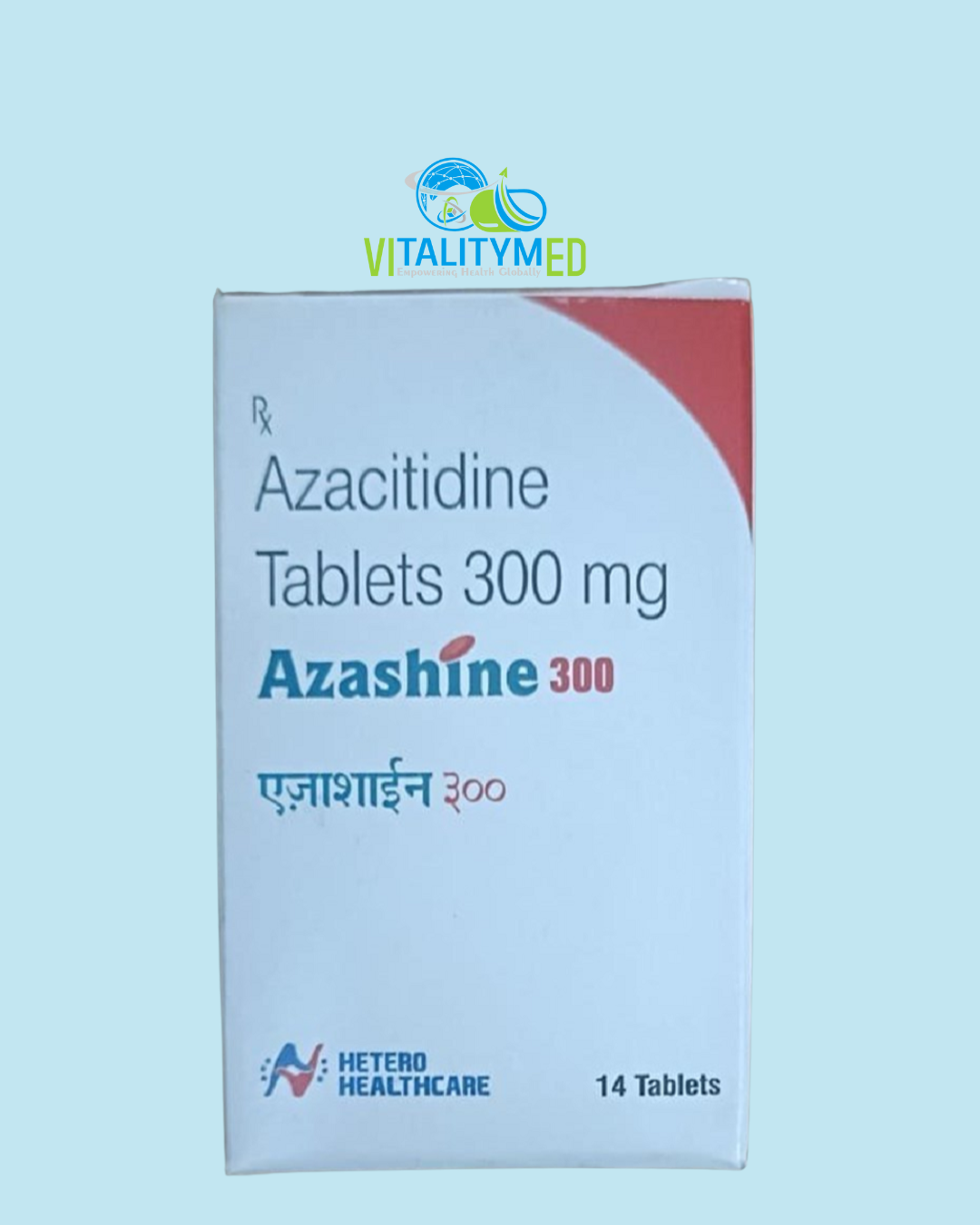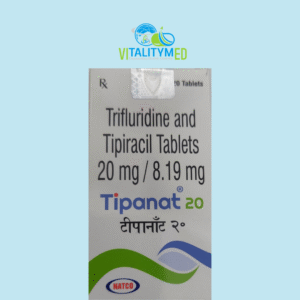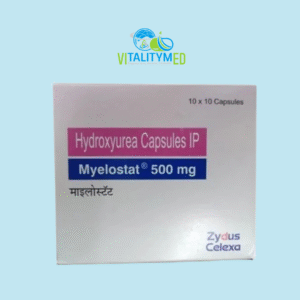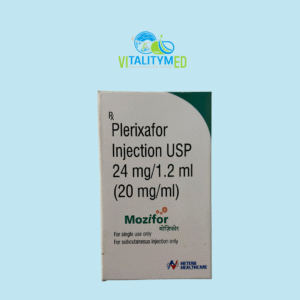Azashine contains azacitidine, a chemotherapy medicine used to treat certain types of blood and bone marrow cancers. It is primarily prescribed for myelodysplastic syndromes (MDS) and some types of leukemia. Azacitidine is classified as a hypomethylating agent, meaning it helps restore normal cell function by altering gene expression.
Mechanism of Action:
Azacitidine works through a dual mechanism:
-
Hypomethylation of DNA
-
In cancer cells, certain genes that suppress tumor growth are often switched off by abnormal DNA methylation.
-
Azacitidine inhibits the enzyme DNA methyltransferase, leading to reduced methylation and reactivation of tumor-suppressor genes.
-
-
Cytotoxic effects on rapidly dividing cells
-
When incorporated into RNA and DNA, it disrupts protein synthesis and cell replication, leading to cancer cell death.
Uses:
Azashine is used in the treatment of:-
Myelodysplastic syndromes (MDS), which are a group of disorders caused by poorly formed or dysfunctional blood cells
-
Chronic myelomonocytic leukemia (CMML)
-
Acute myeloid leukemia (AML) in patients who may not be suitable for intensive chemotherapy
Adverse Effects:
Azacitidine, like other chemotherapy drugs, can cause side effects that range from mild to serious:Common side effects:
-
Nausea, vomiting, or loss of appetite
-
Injection site reactions (if given subcutaneously)
-
Low blood counts leading to fatigue, infections, or bleeding
-
Constipation or diarrhea
-
-
-







